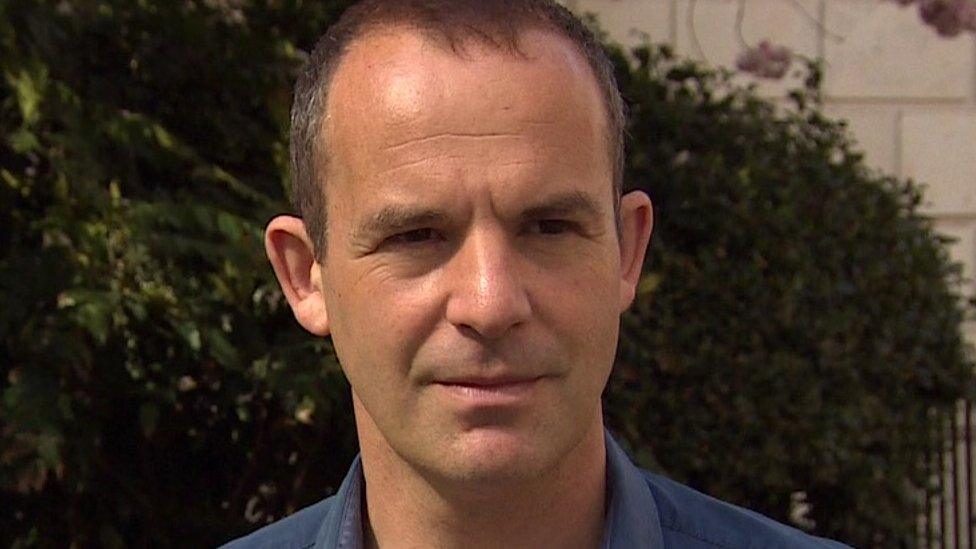'Compulsory' mental health education call to tackle suicide in Wales
- Published
"I didn't realise how much he was struggling"
Mental health education should be compulsory in schools in Wales to tackle the number of suicides among men, according to Samaritans Cymru.
The charity is also calling for basic mental health awareness training for all teachers in Wales.
Schools in England will deliver mental health education from 2020 and Samaritans Cymru said Wales should too.
The Welsh Government said it had launched a new curriculum dedicated to mental wellbeing.
In 2017, 360 people in Wales took their own lives - about three times the number killed in road accidents - and 77% of those were men.
The figures also show men aged between 40 and 44 have the highest suicide rate in Wales and that rates are two to three times higher in the most deprived areas compared with the most affluent.
Rachel Degaetano's son Chae took his own life in 2015 aged 21. Sadly she knows of other families who have had similar experiences, and with community support she is now setting up a suicide support centre in Barry in the Vale of Glamorgan.
She backs the Samaritans' call to put mental health education on the curriculum.
"Before Chae, another two of my friends had taken their own lives and I can remember being in the pub and saying to my friend we're missing something, something isn't right, why is this happening? Are boys not talking?"
"We teach sex education, why don't we teach mental health as well? You're going through puberty, adolescence...your first relationship, but there's nothing to teach you with how to deal with all that... Some people don't know how to cope," she added.
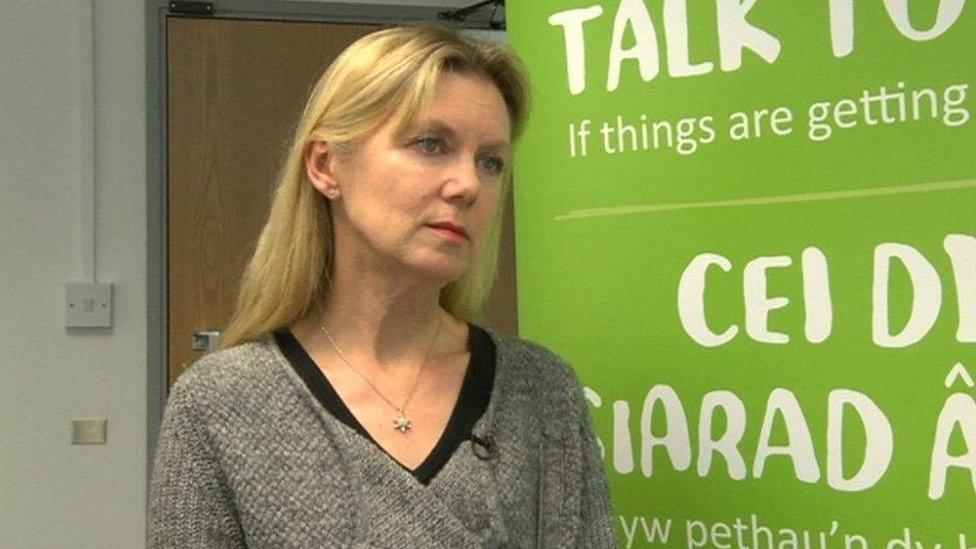
Sarah Stone says Wales is a step behind England
Sarah Stone, the executive director for Samaritans in Wales, said male suicide could be tackled in schools.
"We must equip boys and young men with the resilience and skills to manage their emotional and mental health so they can face the future with optimism," she said.
"Effective suicide prevention must be based on prevention and early intervention."
Samaritans Cymru also called for basic mental health awareness training as part of teacher training.
She added: "We have welcomed the statutory inclusion of mental health education in England. We believe it is crucial to achieve this in Wales too."
Learning resilience
James Downs, a Cambridge University student from Wales, developed OCD, depression and anorexia during his teenage years. He played truant from school and became increasingly isolated.
"There should be room to learn about resilience in the face of the challenges life throws at all of us, and importantly, how to manage mental health," he said.
"What does it say of our education system if there are people like me who may well be leaving school with good CVs, but are totally unequipped to cope with the basics of life?"
Cardiff University student Rosie Moore was diagnosed with depression and anxiety aged 19, but believes she could have accessed help earlier if her teachers had spotted the signs.
She believes her mental health was impacted on when her brother died, aged 18, when she was six years old.
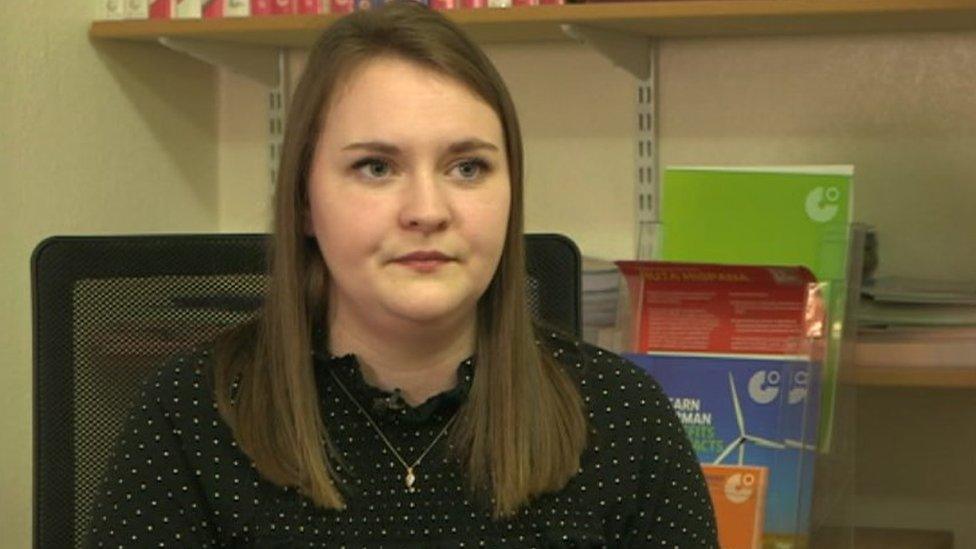
Rosie Moore believes teachers should receive specific training
"I really could have benefitted from some sort of professional help but nothing happened," she said.
"None of my classmates or immediate teachers knew what had happened and one teacher asked me if I had been off with a cold when my brother had died a few days previously.
"I was exhibiting signs of anxiety even then and, if that had been picked up, I could have got counselling or been referred to a GP very early on."
Education Secretary Kirsty Williams said a new area of learning dedicated to health and wellbeing in the curriculum put mental health in equal value to other subjects.
"We have also invested £1.4m to run in reach pilots such as the CAMHS project which introduces mental health practitioners into schools to support both teachers and pupils in identifying and dealing with mental health concerns," she said.

If you are struggling to cope, you can call Samaritans free on 116 123 (UK and Ireland) or visit the BBC Action Line website.
You can also contact the Community Advice and Listening Line for Wales, external, which offers free confidential support with help to find local mental health services, on 0800 132 737 or text 'Help' to 81066.
- Published30 September 2018
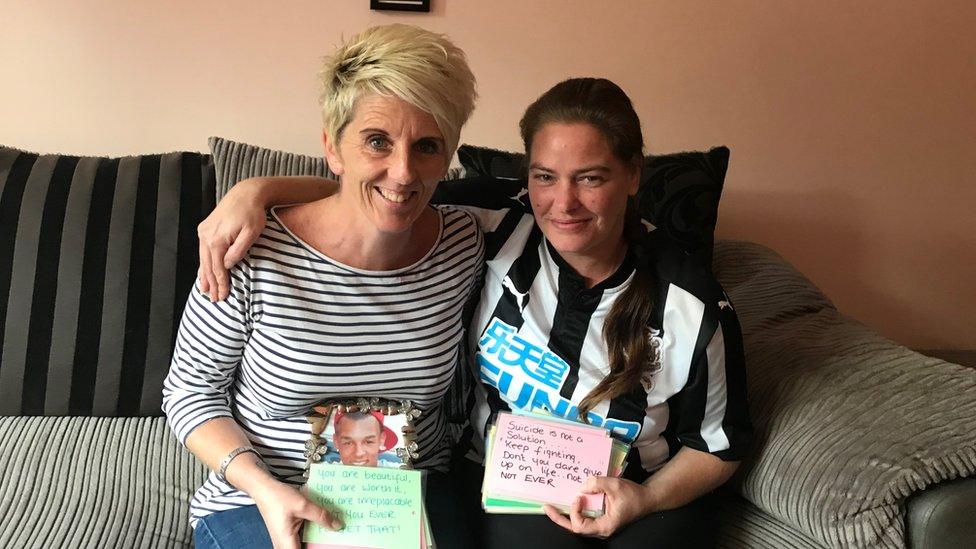
- Published10 September 2018
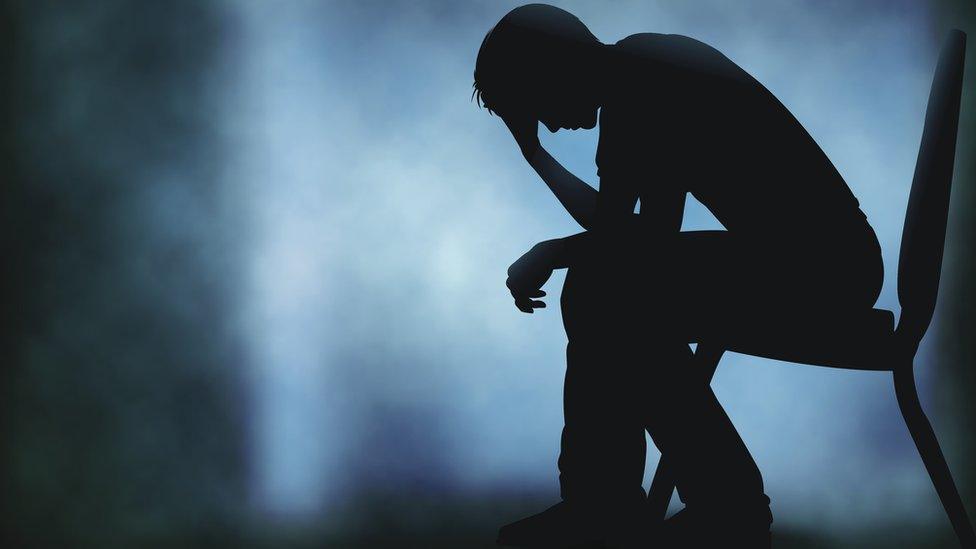
- Published4 July 2018
